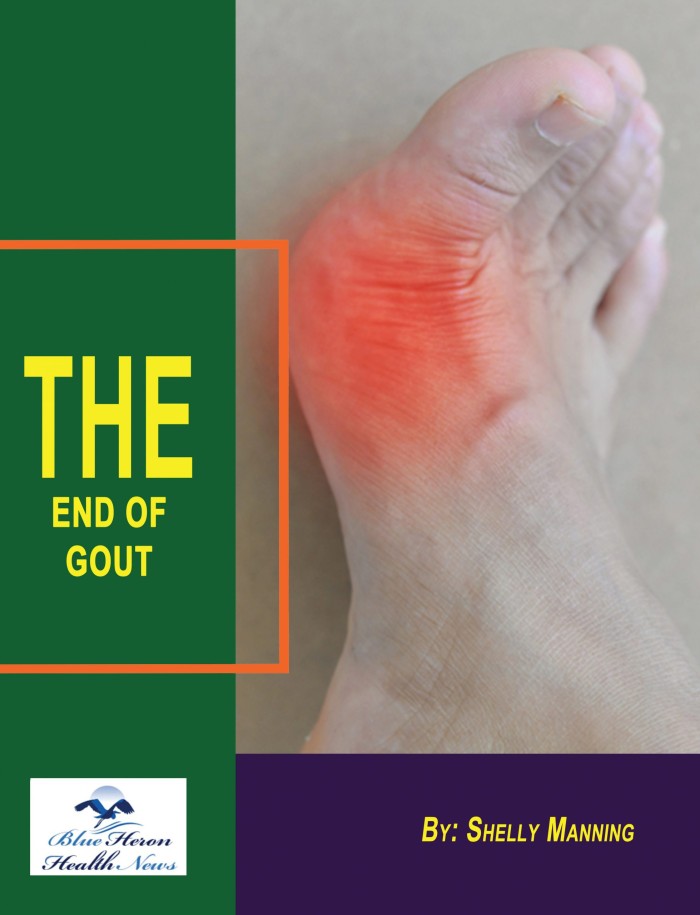
End Of GOUT Program™ By Shelly Manning The End of Gout Program is an intensive lifestyle guide and diet therapy to treat gout. It aids in minimizing and treating the uncomfortable and painful signs of gout naturally and safely. It will teach the impacted everything regarding the condition. This natural program eliminates triggers and factors that give rise to symptoms. The recommendations are honest, effective, safe, and science-based. The program treats you inside out with gout by attacking the cause. By just signing in, you get to access all the valuable information and make your life gout-free. The program has a 60-day money-back too for risk-free use. Several users have expressed their 100 percent satisfaction and results. Give it a try, and you are sure to be surprised by the fantastic results.
Is gout hereditary?
Yes, gout has a hereditary component, meaning a person’s genetic makeup can influence their risk of developing the condition. However, environmental factors, such as diet, lifestyle, and overall health, also play significant roles.
How Genetics Influence Gout:
- Uric Acid Production and Excretion:
- Genetic variations can affect how the body produces and eliminates uric acid.
- Mutations in genes such as SLC2A9 and ABCG2 are linked to inefficient uric acid removal by the kidneys.
- Family History:
- If one or more close family members have gout, your risk is significantly higher.
- Studies suggest that up to 20% of gout cases are familial.
Nature vs. Nurture:
Even with a genetic predisposition, gout may not develop without certain lifestyle or health factors:
- Diet: Consuming high-purine foods can trigger or worsen gout symptoms.
- Obesity: Increases uric acid levels.
- Chronic Illnesses: Conditions like hypertension and kidney disease compound the risk.
Prevention with Family History:
If gout runs in your family, there are steps you can take to lower your risk:
- Maintain a balanced, low-purine diet.
- Stay hydrated to help flush uric acid.
- Avoid excessive alcohol and sugary drinks.
- Maintain a healthy weight and monitor metabolic health.
Would you like more details on genetic testing or lifestyle strategies for high-risk individuals?
Alcohol consumption is strongly linked to an increased risk of gout, as it can raise uric acid levels in the blood, leading to the formation of uric acid crystals that deposit in the joints, causing pain and inflammation.
How Alcohol Affects Gout Risk:
- Increased Uric Acid Production:
- Alcohol, particularly beer and liquor, can increase the production of uric acid. Beer contains purines, which are broken down into uric acid, and liquor can directly raise uric acid levels.
- Impaired Uric Acid Excretion:
- Alcohol can also reduce the kidneys’ ability to eliminate uric acid efficiently, leading to its accumulation in the bloodstream.
- Dehydration:
- Alcohol is a diuretic, which means it promotes urination and can lead to dehydration. Dehydration concentrates uric acid in the blood and reduces the kidneys’ ability to flush it out.
- High Fructose Content:
- Sugary alcoholic drinks, such as cocktails made with sugary mixers, or sweetened beers, can increase uric acid levels due to their high fructose content. Fructose is metabolized into purines in the body.
Specific Alcohol Types:
- Beer:
Beer is particularly problematic because it contains high levels of purines, which increase uric acid production. It’s strongly associated with both acute gout attacks and chronic gout. - Liquor:
Liquor (whiskey, vodka, rum) raises uric acid levels more than wine but less than beer. It can still trigger gout attacks, especially when consumed in large amounts. - Wine:
Wine has a lower purine content than beer and liquor, but it can still contribute to elevated uric acid levels. However, research suggests that moderate wine consumption may be less harmful for gout than beer or liquor.
Moderation and Impact:
- Moderate alcohol consumption:
Drinking alcohol in moderation may have a lesser effect on gout risk than excessive drinking. However, for those with existing gout or high uric acid levels, it’s typically recommended to limit or avoid alcohol entirely to prevent attacks. - Heavy drinking and binge drinking:
Heavy drinking, especially binge drinking, can dramatically increase the likelihood of a gout attack, as it leads to both increased production of uric acid and reduced excretion of it.
Managing Gout with Alcohol Consumption:
- Limit Alcohol Intake:
If you have gout or are at risk, it’s best to limit alcohol consumption. Aim for no more than one drink per day for women and two drinks per day for men. - Stay Hydrated:
Drink plenty of water to help flush out uric acid and avoid dehydration, which exacerbates gout. - Avoid Beer and Liquor:
It’s advisable to avoid beer and liquor, which have a higher association with gout attacks, especially during flare-ups.
Would you like advice on alcohol alternatives or strategies for reducing alcohol intake if it’s a concern?
End Of GOUT Program™ By Shelly Manning The End of Gout Program is an intensive lifestyle guide and diet therapy to treat gout. It aids in minimizing and treating the uncomfortable and painful signs of gout naturally and safely. It will teach the impacted everything regarding the condition. This natural program eliminates triggers and factors that give rise to symptoms. The recommendations are honest, effective, safe, and science-based. The program treats you inside out with gout by attacking the cause. By just signing in, you get to access all the valuable information and make your life gout-free. The program has a 60-day money-back too for risk-free use. Several users have expressed their 100 percent satisfaction and results. Give it a try, and you are sure to be surprised by the fantastic results.